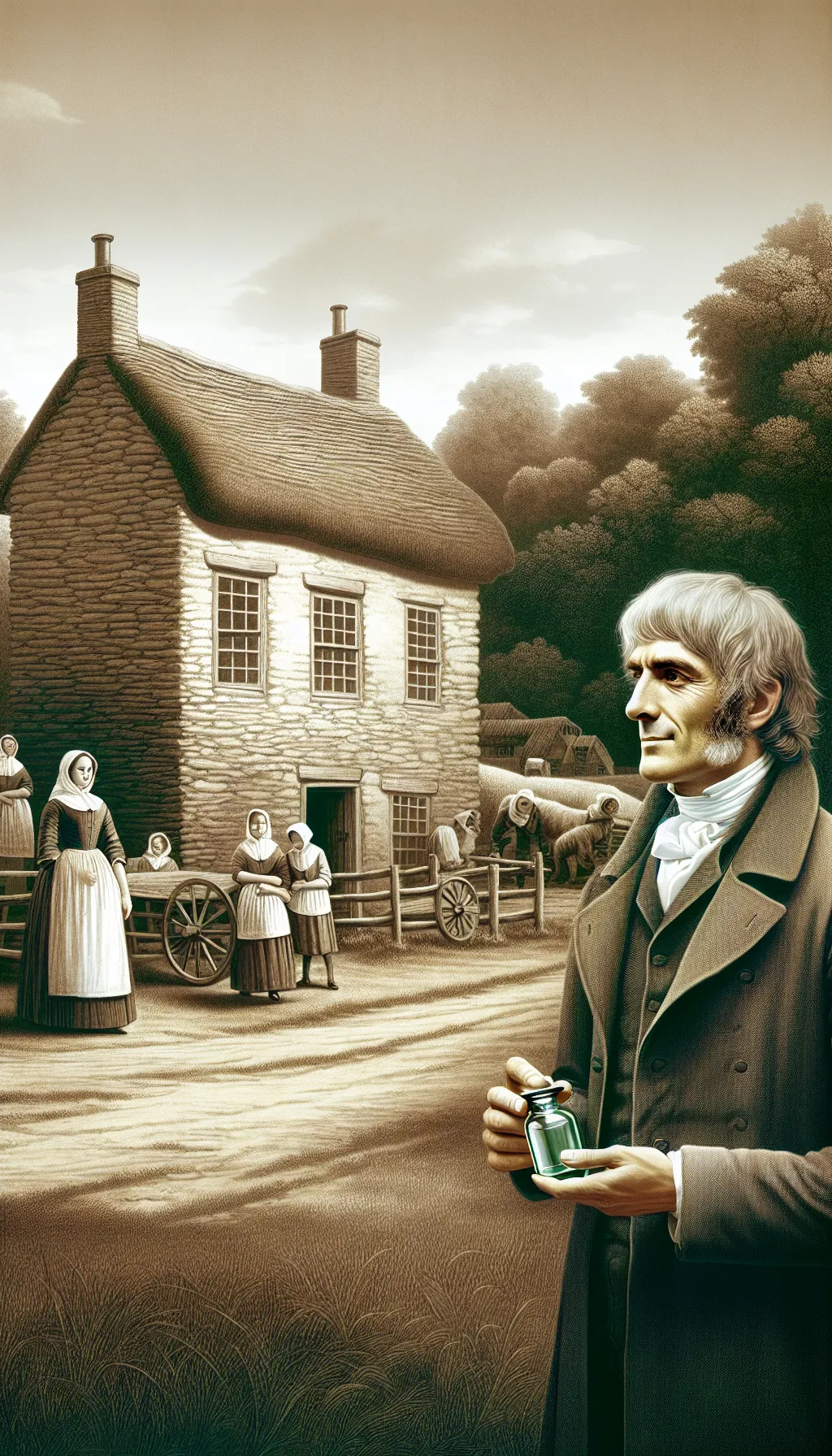England – The Birth of Vaccination: Edward Jenner's Bold Experiment - 1796
TLDR;
- Event: On May 14, 1796, Edward Jenner conducted the first smallpox vaccination using cowpox material on James Phipps in England.
- Discovery: Jenner proved that cowpox exposure provided immunity to smallpox, a disease that had caused widespread death and suffering.
- Impact: This experiment led to the development of vaccines, revolutionizing medicine and saving millions of lives worldwide.
- Legacy: Jenner’s work is considered the foundation of immunology, earning him the title ‘Father of Vaccination’.
–
Story
In a small English village on May 14, 1796, a quiet revolution was about to unfold. Edward Jenner, a country doctor with a curious mind, was about to challenge the deadly grip of smallpox, a disease that had ravaged humanity for centuries. His weapon? A simple cowpox pustule.

The air was tense with anticipation as Jenner prepared to administer his groundbreaking experiment. His subject, a young boy named James Phipps, sat nervously, unaware that he was about to become a pivotal figure in medical history. Jenner had heard accounts that milkmaids who contracted cowpox, a much milder disease, seemed immune to smallpox. His experiment sought to prove this link scientifically.
With a steady hand, Jenner made a small incision on James’s arm and introduced material from a cowpox sore on the hand of milkmaid Sarah Nelmes. Days passed, and the boy developed a mild fever but soon recovered. The true test came months later, in July 1796, when Jenner exposed James to smallpox. Astonishingly, the boy remained healthy, his body having built a defense against the deadly virus.
This moment marked the birth of vaccination, paving the way for immunology, a field that would save countless lives and change the course of medical science. Jenner’s bold experiment laid the foundation for vaccines, a tool that continues to protect humanity from infectious diseases to this day.
–
| Would you have taken the risk in Jenner’s place, knowing the potential consequences? |